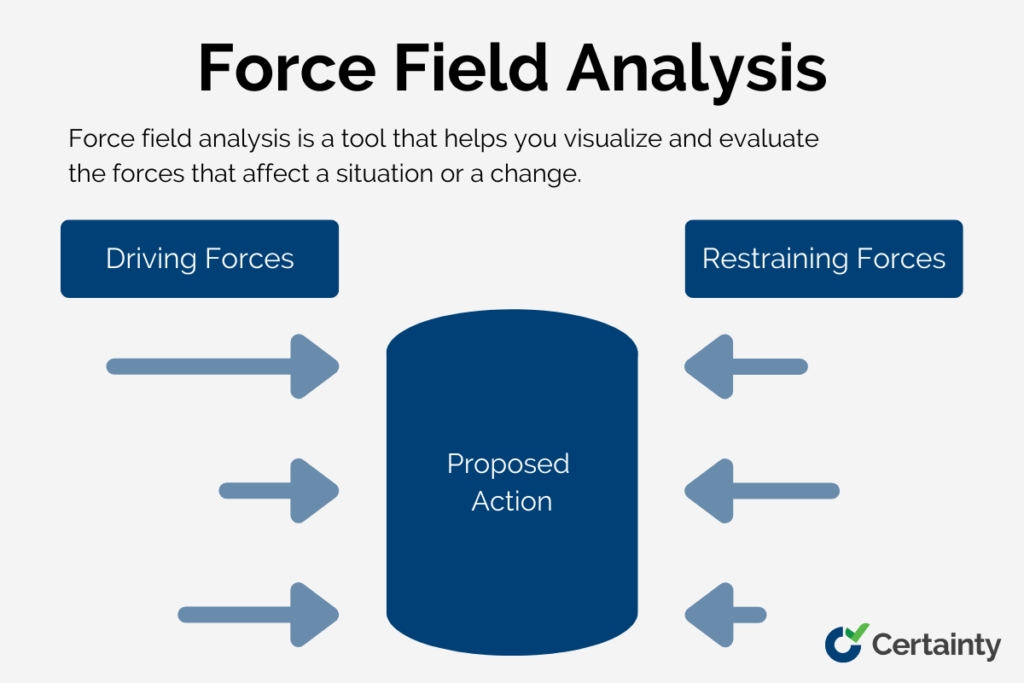Force field analysis is a change management tool that helps you analyze the factors that support or oppose a proposed change. It was developed by Kurt Lewin, a social psychologist who introduced the field theory and the theory of change. In this blog post, we will explain what force field analysis is, how it works, and how you can use it to make better decisions. You will learn how to define the current and desired states of a situation, identify and score the driving and restraining forces, draw a force field analysis diagram, and develop an action plan based on the results. […]
Supply Chain Management

Certainty and AI: Implementing AI in Certainty to Reduce Risk, Improve Performance, and Fuel Innovation and Growth
In this blog post, we will share the benefits of implementing AI in Certainty to enhance our product features and benefits for our customers. We will also explain some tips to best prepare your AI implementation. […]
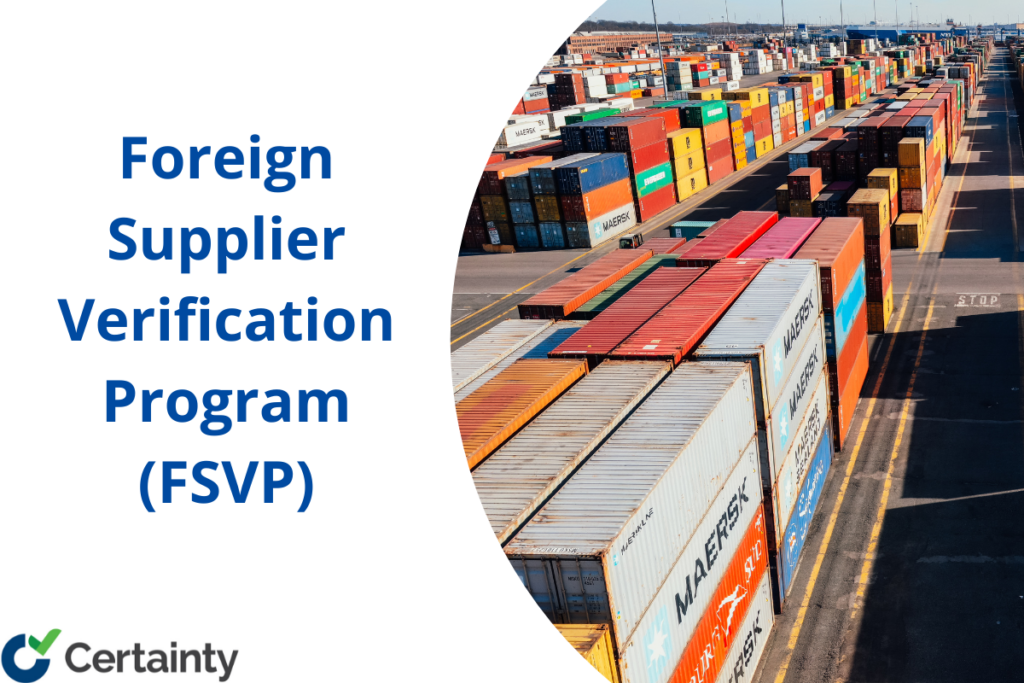
How to Comply with FSVP: A Guide for Importers of Food
Complying with FSVP can help you protect your consumers and your brand reputation, as well as avoid costly penalties and disruptions in your supply chain. But how do you comply with FSVP effectively? In this blog post, we will answer some of the most common questions that importers of food have about FSVP and provide some tips and best practices for achieving FSVP compliance. […]

Bridging the Gap: 10 Strategies for Closing Communication Gaps During Internal Audits and Inspections
Effective communication is crucial for the success of any business, and ensuring that all team members are on the same page and understand their roles and responsibilities is vital for achieving compliance and improving overall organizational performance. However, communication breakdowns can occur in any organization, and they can be particularly damaging when it comes to internal audits and inspections. […]
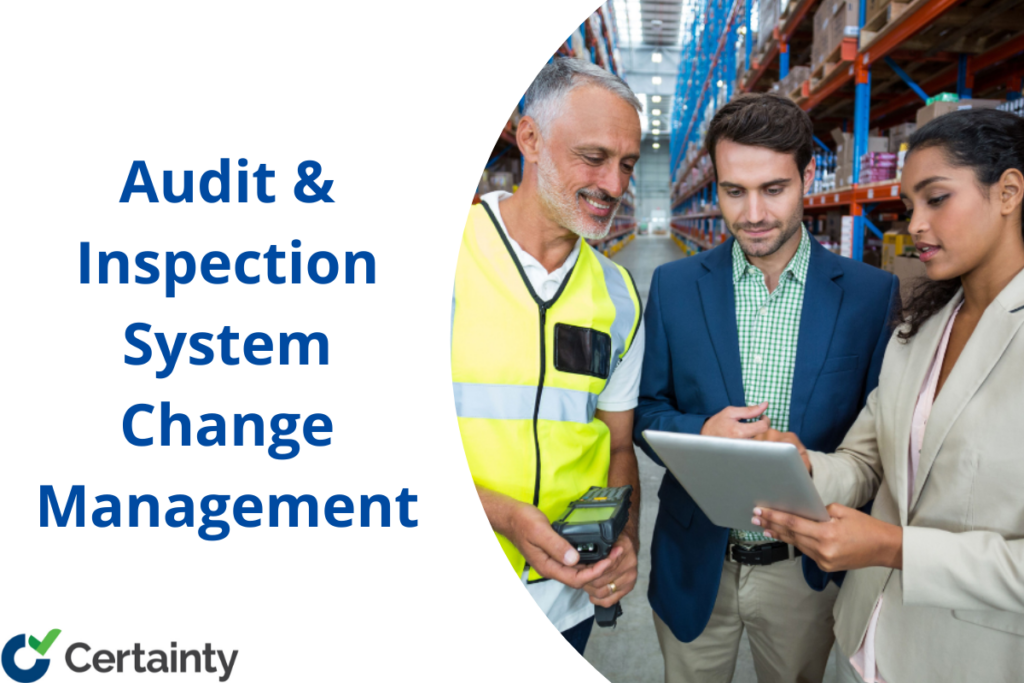
Internal Audits and Inspections System: A Guide to Change Management
This blog is intended to serve as a guide for those leading their organizations through the changeover process. From project planning to ongoing support, we will discuss the key steps necessary in change management. You’ll learn how to successfully implement your new system while minimizing your risk of negative consequences […]
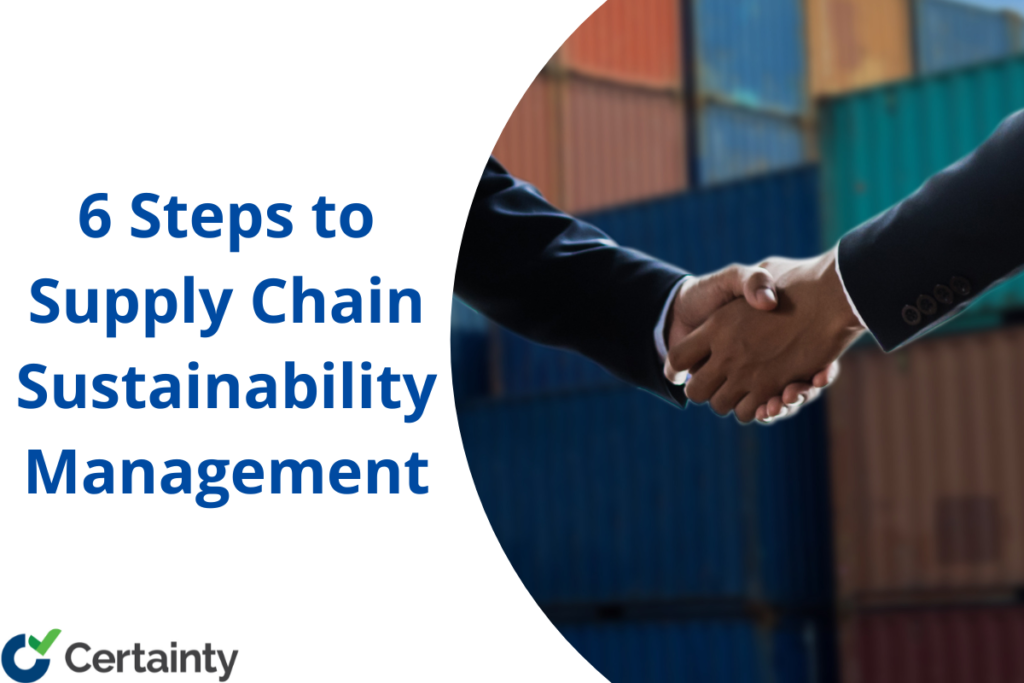
The 6-Step Process to Supply Chain Sustainability Management: Reducing Human Rights and Environmental Risks in Your Supply Chain
Businesses in today’s market are under greater pressure to make sure that their entire supply chain is managed in a socially and environmentally sustainable manner. This pressure is driven by a number of factors. Some of these include increasing reputational awareness of the environmental and social impact of business operations from customers, investors, stakeholders, and regulatory bodies, and the volatility of supply chain disruptions. […]
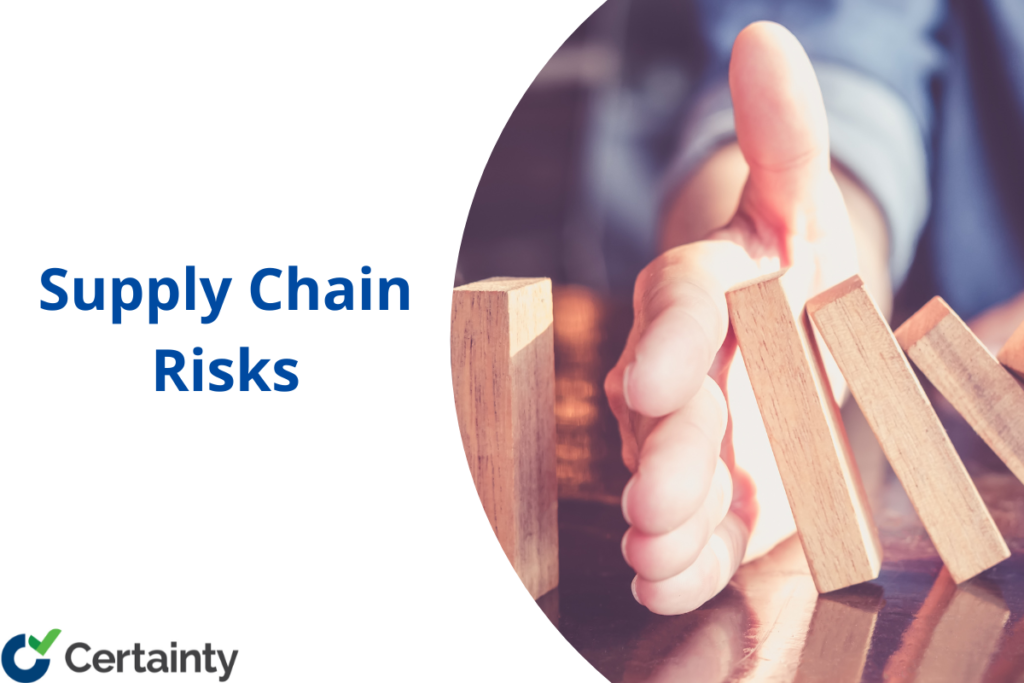
What are Supply Chain Risks and How to Manage and Mitigate Them
Supply chain disruptions and risks are becoming increasingly common, affecting businesses of all sizes and across various industries. The data speaks for itself – recently released by Resilinc’s EventWatchAI monitoring database, supply chain disruptions in Europe increased by 38% in 2022. To ensure business continuity and success in today’s global market, it’s crucial for companies to understand the various types of supply chain risks and implement effective risk management strategies. […]
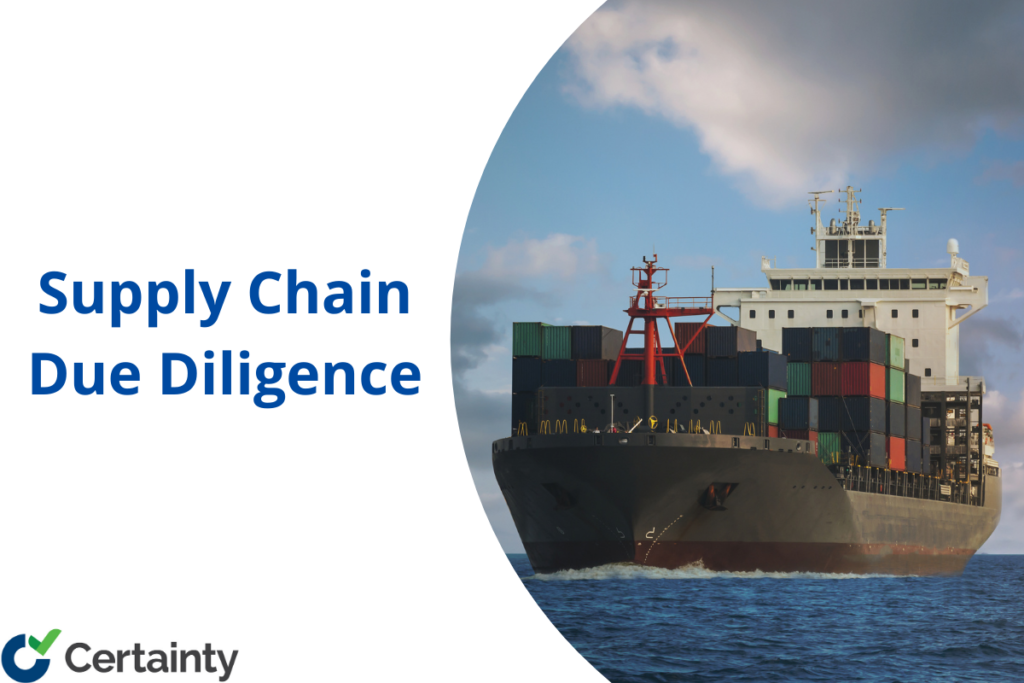
Uncovering Hidden Risks in Your Supply Chain: The Importance of Supply Chain Due Diligence
Supply Chain Due Diligence is a critical process that companies must undertake to ensure that their sourcing, procurement, and supplier management practices align with responsible business standards and regulations. With the increasing focus on environmental, social, and governance (ESG) issues, the practice has become a vital aspect of risk management for companies of all sizes. […]
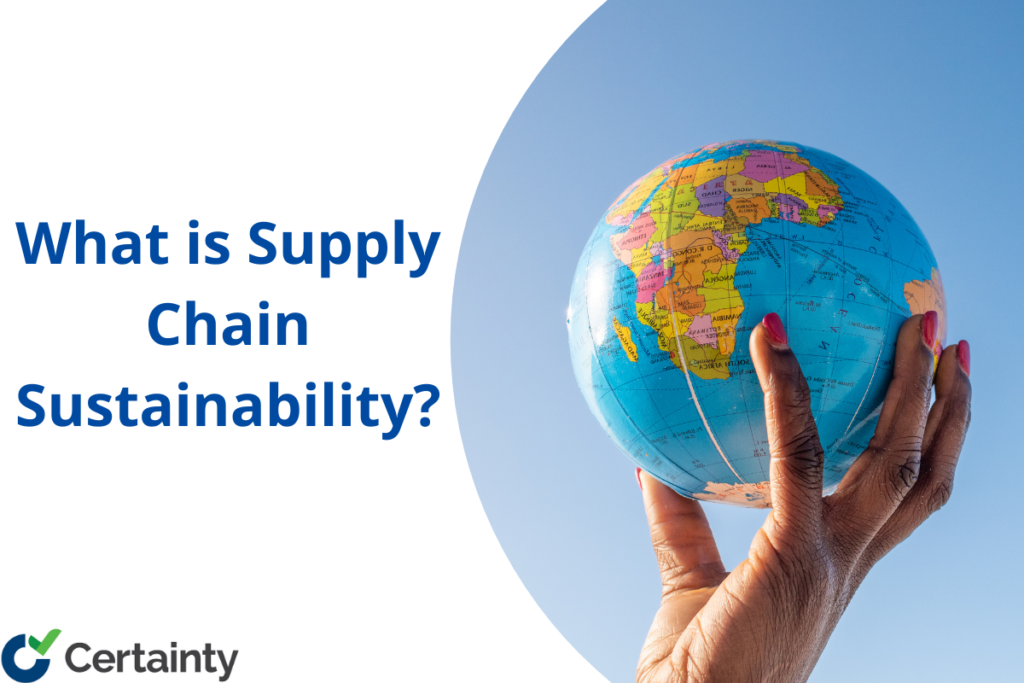
What is Supply Chain Sustainability and How to Manage it?
As consumers become more conscious of the impact their choices have on the environment and society, businesses are increasingly being held accountable for the sustainability of their global supply chain. With companies allocating upwards of 80% of their budget to procurement, supply chain sustainability has become a crucial aspect of corporate social responsibility. […]
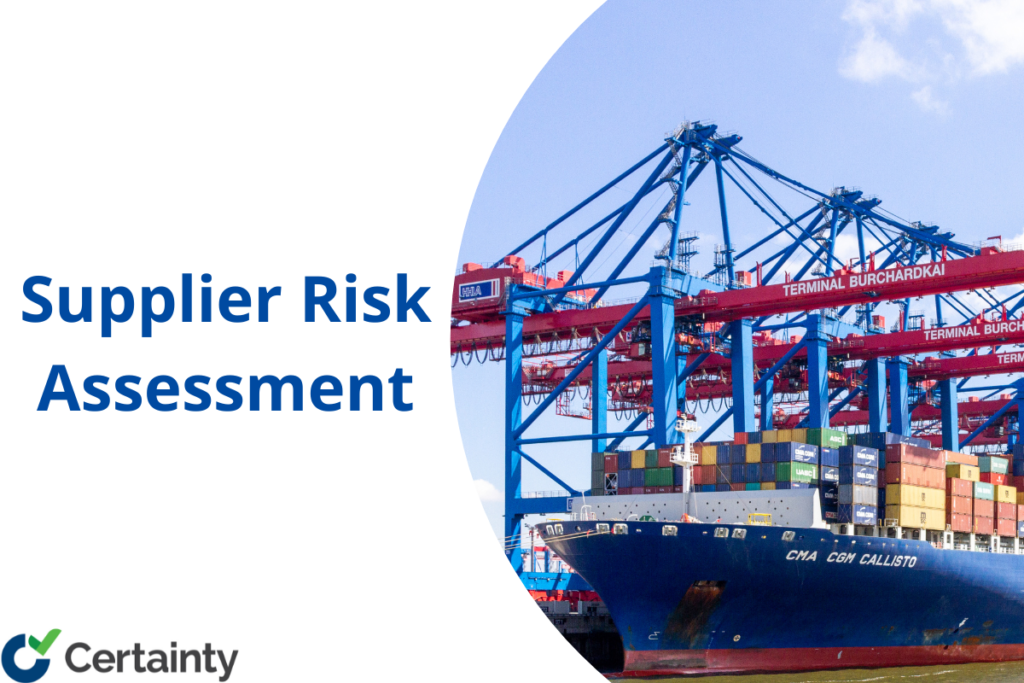
What is a Supplier Risk Assessment – Why it’s Important
The general purpose of a supplier risk assessment is to ensure that a business is working with reliable and trustworthy suppliers. This is important because a company’s suppliers play a critical role in its overall operations, as they provide the raw materials, components, and services that are necessary to produce and deliver products and services to customers. […]
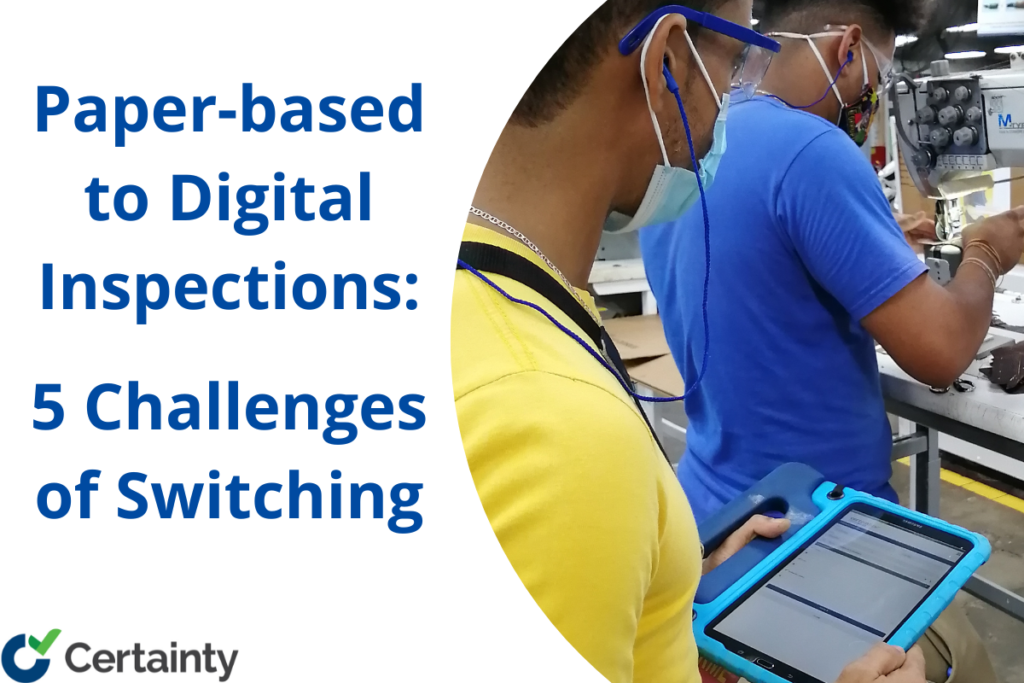
5 Challenges When Switching From Paper-based Inspections to Digital Inspections
Table of contents If you are a business that relies on paper-based inspections, you are likely familiar with the challenges that come with this type of system. Paper-based inspections can be cumbersome and inefficient, from time-consuming data entry to the difficulty of tracking and storing inspection data. Fortunately, there is a better way. Digital inspections […]
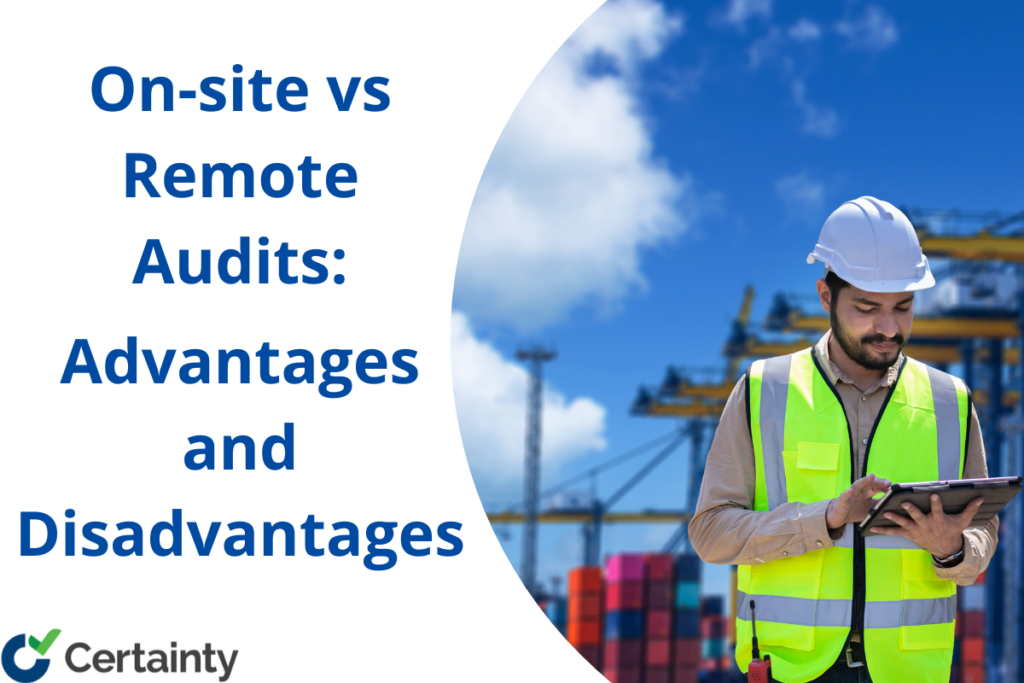
On-site vs Remote Audits: Their Advantages and Disadvantages
The Covid-19 pandemic quickly pushed businesses to remote work and to digitize previously manual processes. The same was said for the business’s external and internal auditing processes. As health and safety risks of the global pandemic increased, the traditional way of auditing primarily on-site needed adjusting towards remote auditing. This is only magnified for businesses involved in a globalized supply chain that regularly audits their suppliers. […]
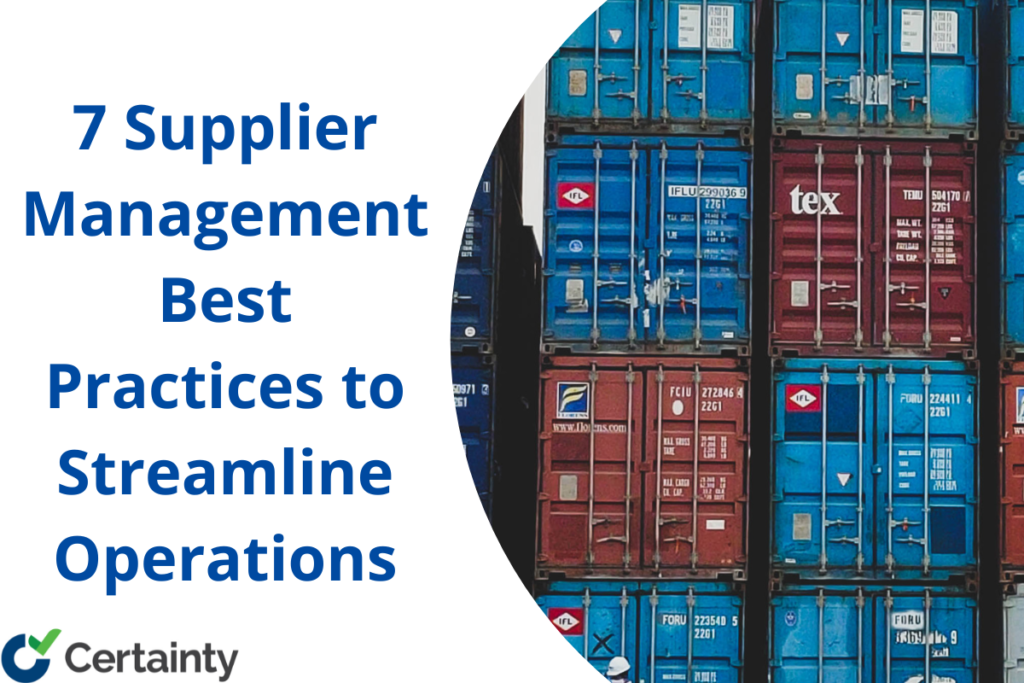
10 Supplier Management Best Practices
The supply chain management landscape has changed significantly over the past two years. As noted by Supply Chain 24/7, 84% of enterprise CFOs now see supply chain disruptions as moderate or severe risks. And even if suppliers don’t experience shortages or work stoppages, getting goods where they’re going is more expensive.
Transportation costs may increase by 600% compared to pre-pandemic levels. This increase is dependent on the origin and destination of goods, as well as the mode of transportation used.
The result? Supplier diversification. Companies, large and small, now understand the danger of relying on one supplier and have started using multiple suppliers. With more suppliers, however, comes more complexity, in turn creating a need for more robust supplier management. […]
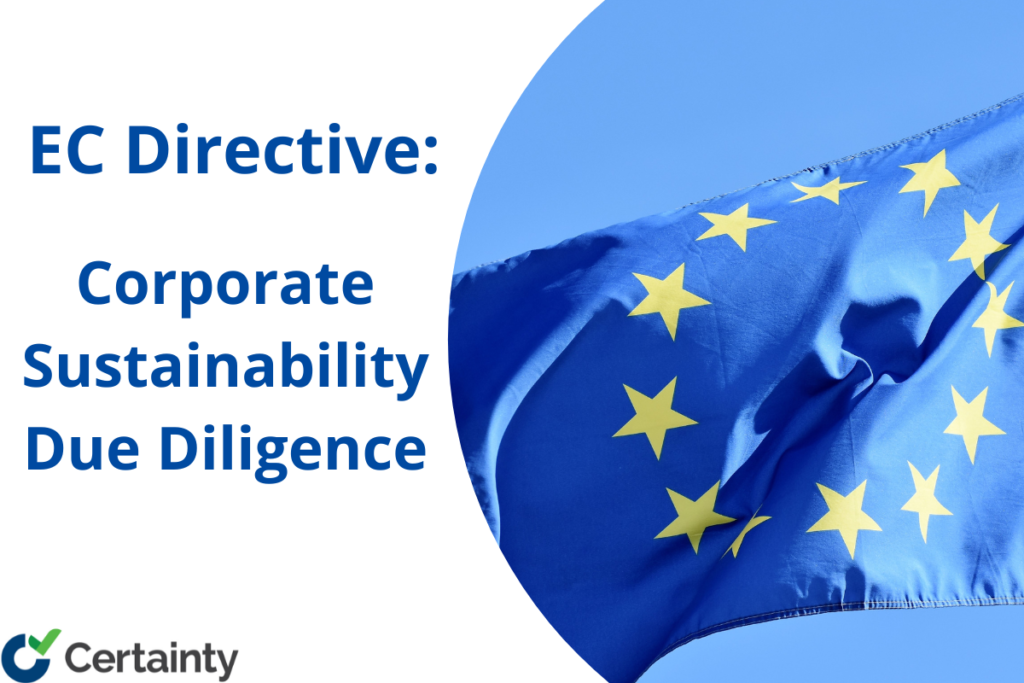
Managing Human Rights and Environmental Impacts in Supply Chains: The Proposed EC Directive on Corporate Sustainability Due Diligence and What it Means for Businesses with Global Supply Chains
What is the EC Draft Directive on Corporate Sustainability Due Diligence? Proposed by the European Commission in February 2022, the EC Directive on Corporate Sustainability Due Diligence aims to force global brands to play a key role in building a “just and sustainable economy” through their compliance with rules that enforce the “respect of human […]
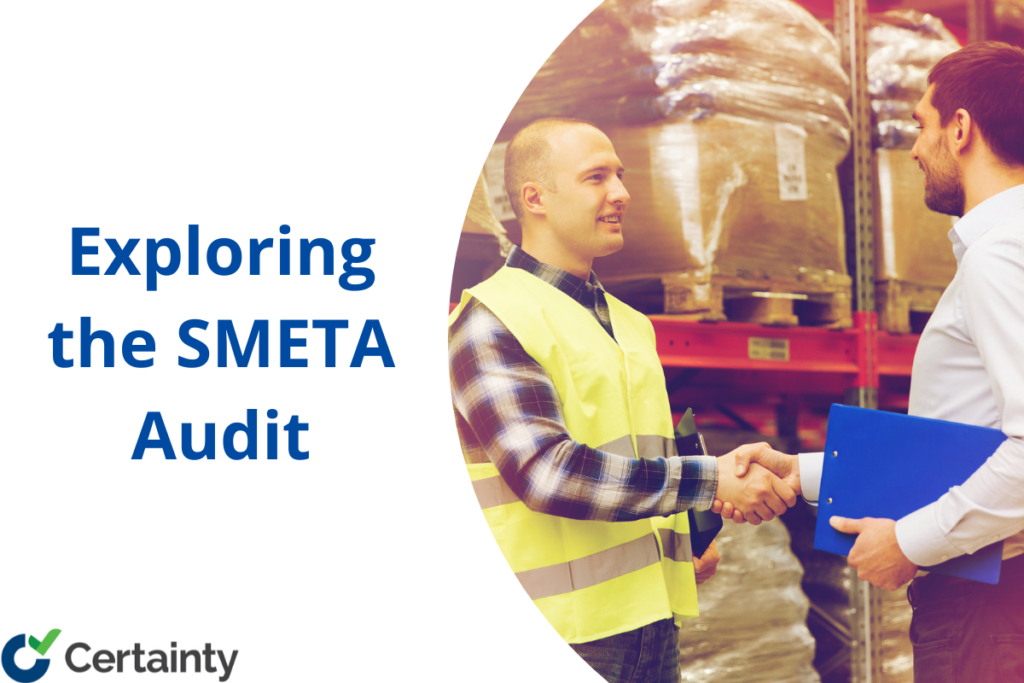
What is a SMETA Audit and Why You Need One
Social responsibility and sustainability are now critical components of business success. But in order to effectively deploy and integrate environmental, social, and governance (ESG) frameworks, companies need to know what’s working, what isn’t, and what needs to change across current operations. A SMETA audit can help. What is a SMETA Audit? SMETA stands for the […]

